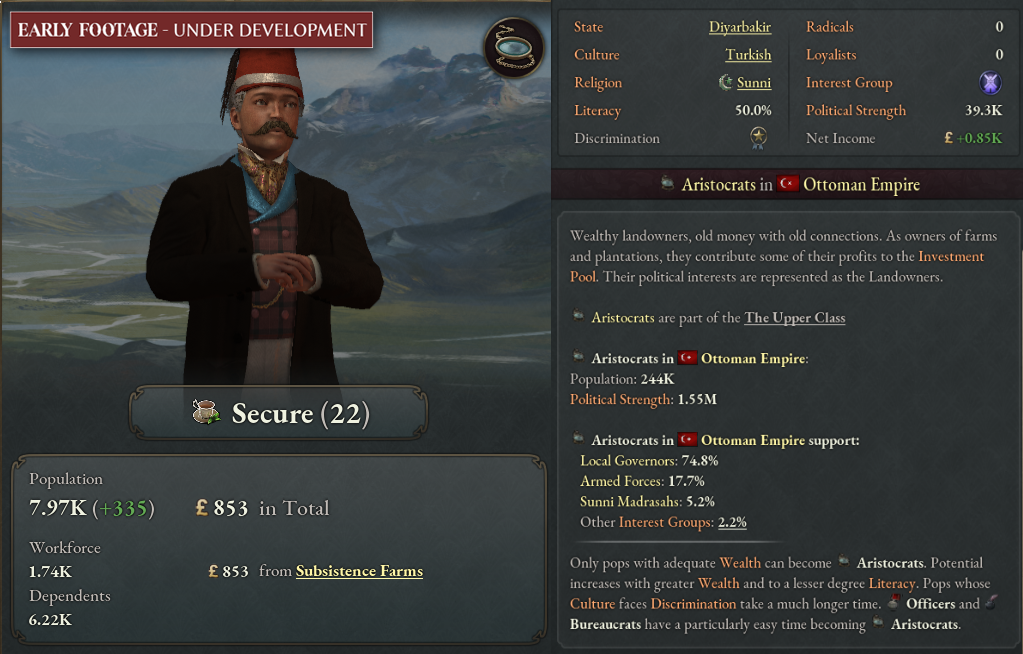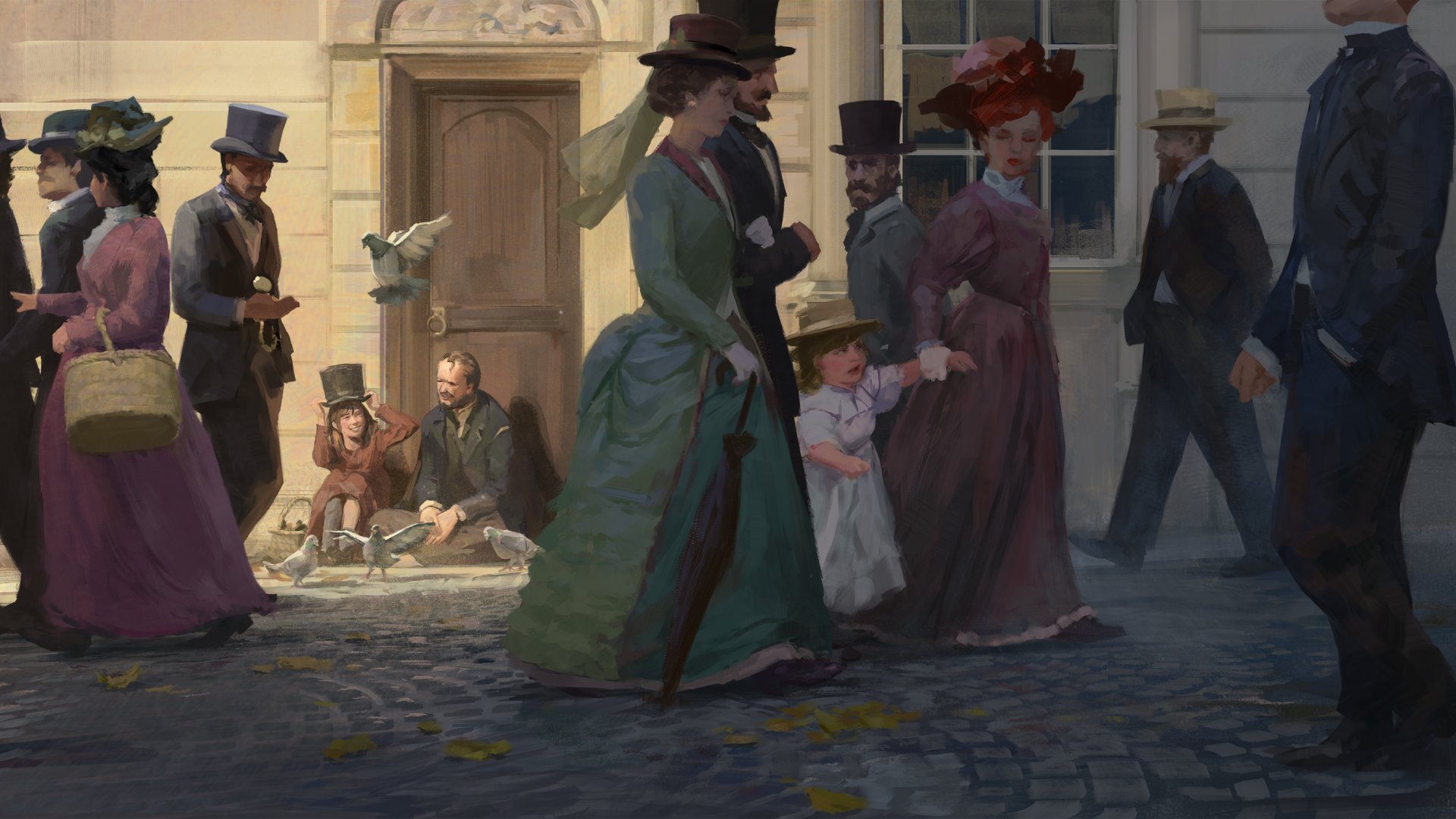
Hello everyone! I’m Mikael, Victoria 3’s lead game designer - and oh boy does it feel good to finally be able to say that out loud! Today I have the pleasure to reveal some details about that one feature everyone thinks about when they hear “Victoria” - the Pops.
Pops were introduced in the very first Victoria game to represent your country’s population. Pop mechanics have since snuck into other Paradox titles like Stellaris and Imperator. But this in-depth population simulation is what Victoria is about, and we’re going to bring you a system with more depth than ever before!
In Victoria 3, Pops are the country’s engine - they work the industries, they pay the taxes, they operate the government institutions, and they fight the wars. They’re born, they die, they change occupation, they migrate. And they organize, get angry, and start revolutions.
Every Pop is visualized so you can see which demographic sports the best moustache. Note that Pop portraits are very much a work in progress!

You, the player, might be in charge of the country, but you’re not in charge of the Pops and can’t manipulate them directly. Yet everything you do to the country affects them, and they in turn will react in what they perceive to be their own best interests. A large part of your game will consist of trying to sate your population’s appetites for material goods or political reform. But most actions you will take aren’t to the benefit of every Pop in your nation, and by making life better for one part of the population you may inadvertently upset another demographic.
The most important aspect of Pops are their Professions, which reflects the types of jobs it carries out in the building where they work. A Pop’s profession determines its social class and can affect its wages, political strength, what other professions it might qualify for, and particularly which political Interest Groups it’s prone to supporting (which you will hear lots more about in future Dev Diaries.) Some of the Pop professions you will encounter in Victoria 3 are Aristocrats, Capitalists, Bureaucrats, Officers, Shopkeepers, Machinists, Laborers, and Peasants. Investing in industries that provide job opportunities for the kinds of professions you want to encourage in your country is key to the “society building” gameplay of Victoria 3.
Every variation of Profession, Culture, Religion, and Workplace in the world gets its own unique Pop. At any given time this results in many tens of thousands of Pops in the world working, migrating, procreating, and agitating.

The people that make up a Pop are distinguished into Workforce and Dependents. Members of the Workforce keep the buildings in the game operational and collect a wage from them in return. Those who cannot or aren’t permitted to be officially employed are considered Dependents. They collect only a small income from odd jobs and government programs.
Laws affect who is included in each category. At game start most countries do not accept women working and collecting a wage outside the home but by reforming laws governing the rights of women more Dependent Pops will enter the Workforce over time. By abolishing child labor, the amount of income Dependents bring home will decrease but will make it easier to educate your populace, increasing their overall Literacy. After a bloody war many Dependents of soldiers may be left without sufficient income, and you may decide to institute pensions to help your population recover.
In short: nothing in your country runs without Pops, and everything about your country affects those Pops, who in turn provide new opportunities and challenges during your tumultuous journey through the Victorian era and beyond.
I have oh so much more to say, but that is all for this week! You will hear much more from me in future Dev Diaries. Next week Martin will return to explain something quite central to the game - Capacities!



